Most game genres are pretty self-explanatory. Is the main point to go around a course and arrive first at a finish line? It’s a racing game. Do you have a first-person camera and shoot at enemies? It’s a first person shooter. Simple.
Not all genres are quite so simple, however. One genre which is a little less clear is the RPG, or Role-Playing game. Most games involve the player controlling a character, and could therefore be considered “Role-playing games”. When you play a Mario game you are certainly playing a role – even if you are an italian plumber, it is likely that you don’t spend your days stomping mushrooms and rescuing princesses. However, almost everyone would agree that Mario games are not RPGs.
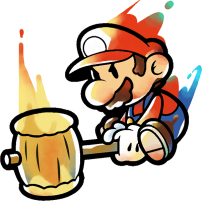
It seems that being a “Role-playing game” requires more than simply playing the role of a character. But if that is the case, what does it mean? To answer this question I am going to be taking a quick look at the history of this genre, some common traits and mechanics, and the different subcategories of RPG to figure out what truly defines this genre.
Here be Dragons
While this article will mostly be concerned with digital RPGs, the genre initially got its start in the world of tabletop games. The game that is commonly considered to be the first modern RPG is Dungeons and Dragons, originally released in 1974. This game has had such a tremendous impact on the history of game design that It could easily fill it’s own article (which I’m sure I will get to eventually), but it’s biggest innovation was the creation of a number of aspects that have been inseparably associated with the RPG genre.
Dungeons and Dragons takes place in various fantasy-inspired realms, and because of this RPGs to this day are often associated with the fantasy genre. In addition to it’s influential setting, Dungeons and Dragons is the originator of many classic RPG mechanics such as custom characters, the race/class model, leveling systems, experience points, etc.
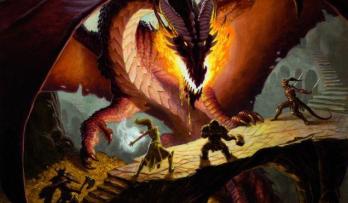
Many of these mechanics grew out of the fundamental goal of the game – to allow players to step into the shoes of a character completely outside themselves. The player gets to choose what type of character they want to play, but once they choose they are bound by the abilities and limitations of their choice. The stats of the character have no relationship to the players’ own abilities, and belong entirely to the character themselves.
While the player may be very experienced, the character has to grow and evolve as the game goes on. This is where the leveling system comes in – the character’s progress is only connected to their own actions within the game itself, not the knowledge, skills or abilities of the player. The entire mechanical system of the game is designed to establish the character as an entity separate from the player, with their own personalities, abilities, and goals.
The release of Dungeons and Dragons led to a slew of games trying to emulate it, both in the tabletop and the digital space. The first digital RPGs began appear only a year or two after Dungeons and Dragons first appeared, and were mostly played through text on mainframe computers. The goal of most of these early digital RPGs was to capture the experience of a D&D session in a digital format.
Over time, however, digital RPGs began to grow and evolve in several different directions. Multiplayer RPGs (originally known as MUDs, and know called MMORPGs) began to develop in the early 1980s, which allowed users to collectively create and modify the world of the game. On the other hand, many single-player RPGs began to have a higher focus on storytelling, and moved away from the infinite possibilities of the early tabletop RPGs.
What’s in a Name?
These days the RPG genre encompasses a huge variety of different game types, many of which barely resemble their tabletop roots. This can make it difficult to pinpoint what actually defines something as an RPG in the first place. Is it the fantasy setting? Certainly not, since many RPG games (such as the Mass Effect or Fallout series) do not take place in a traditional fantasy world.
Perhaps the key is the ability to create your own character? But that cannot be the case, as many fantasy games such as the aforementioned Paper Mario series or even Final Fantasy put the player in control of a predetermined party of characters. In addition, many non-RPG style games still allow the player to customize their character at the beginning of the game.
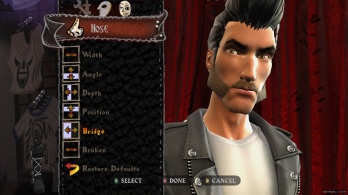
One mechanic that is very commonly associated with the RPG genre is a leveling system. Typically this system involves the player gaining experience over time, and once a certain amount of experience is collected the player levels up, potentially unlocking new skills and abilities. This mechanic goes all the way back to the original Dungeons and Dragons – surely it must be the thing that truly defines an RPG?
Alas, this is not the case. While leveling systems are found in pretty much every RPG, they are also found in games of many other genres. Shooters, MOBAs, and even puzzle games can have leveling systems, so this mechanic by itself is not enough to identify a game as an RPG.
One common implementation of RPGs uses a turn-based battle system for combat. Is this system enough to identify a game as an RPG? Once again, this does not work. Some strategy games may choose to use a turn-based combat system without being RPGs, and there are entire subgenres that do not use this system.
The Missing Link
There is no single element, or even combination of elements, that can definitively classify a particular game as an RPG. Instead, I believe the thing that defines this genre is more about the intent of the game. The goal of early tabletop games was to force the player to see the character as connected to themselves, but separate, and I believe that it is this attribute that is still the defining trait of the genre.
This trait can be implemented in many different ways. Leveling is one way, but the leveling in RPGs tends to differ from other games that use the system. In many non-RPGs that use a leveling system it is actually you, the player, that levels up – not the character. One recent example is the Bloons Tower Defense series, which recently released it’s sixth entry. Every time you level up you have the ability to unlock new monkeys or upgrade your existing monkeys. In an RPG, on the other hand, leveling up represents the character reaching a new level of skill within the world of the game.

There are many different ways to implement leveling systems in these games. The classic one is to simply have actions such as combat generate generic experience points, and once you reach a certain amount you level up. However, there are a number of other variations to this system that can achieve similar effects. One I particularly like is the system used in the Elder Scrolls games, where particular skills level up based on how much you use them.
However, leveling systems are not the only way to create this feeling of “connected but separate”. Another way is to allow the player to make decisions throughout the game that affect the final outcome. This often comes in the form of a morality system, in which the player can choose whether to behave in a “good” or “evil” way. It can also take the form of branching story paths, in which the player must make certain key choices that can affect their future options.
I believe that the turn-based combat system common in many RPGs, in addition to being a relic of past hardware limitations is actually another way of creating this separation between the player and the character. The combat system generally allows you to take your time with making decisions – it is not testing your reflexes or dexterity as a player.
Instead, it is primarily testing the strength of your character – are they strong enough? Your character starts out very low level, and you are required to slowly level it up to meet harder and harder challenges. While player skill may have some effect on the outcome, the primary factor is usually the character’s level. If a boss is destroying your party in 1 hit, no amount of skill is likely to save you. Instead, you just have to go out and raise the level of your character until you are ready.
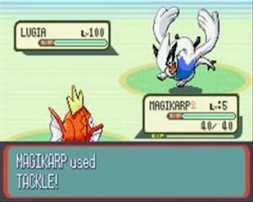
Subgenres
As RPGs have become such a large category of games, I would like to finish this article with a quick look at some of the common subcategories.
CRPG (Classical RPG)
- The CRPG acronym is also sometimes used to mean “Computer RPG”, but I am going to be using it’s more recent meaning. CRPGs are probably the first thing that comes to mind when you think of the word RPGs – party based, tactical gameplay, probably with a lot of grinding thrown in. Examples include Baldur’s Gate and the original Fallout games.
JRPG (Japanese RPG)
- While directly referring to RPGs made in Japan, these games also tend to have a lot of similarities. Tend to have a higher focus on story, characterization, and building / interaction within a party of characters. Very likely to have a turn-based battle system. Examples include the Final Fantasy series and the Persona series.
MMORPGs (Massively Multiplayer Online RPGs)
- These games involve a large number of players playing together on a shared server. Typically have simplified combat systems, and have a focus on character customization and social interaction. Examples include The World of Warcraft and Elder Scrolls Online.
Action RPGs
- The main distinguishing feature of Action RPGs is their combat system. Instead of using a tactical or turn-based system, these games use real-time, action-based combat systems. These games can be first or third-person, and there is a wide range of ways that they can actually be implemented. Examples include the Kingdom Hearts series and the Elder Scrolls games.
Until Next Week
That is all I have for this week! If you enjoyed this article, please check out the rest of the blog and subscribe on Facebook, Twitter, or here on WordPress so you will always know when I post a new article. If you didn’t, let me know what I can do better in the comments down below. And join me next week, when I look at personality in games!

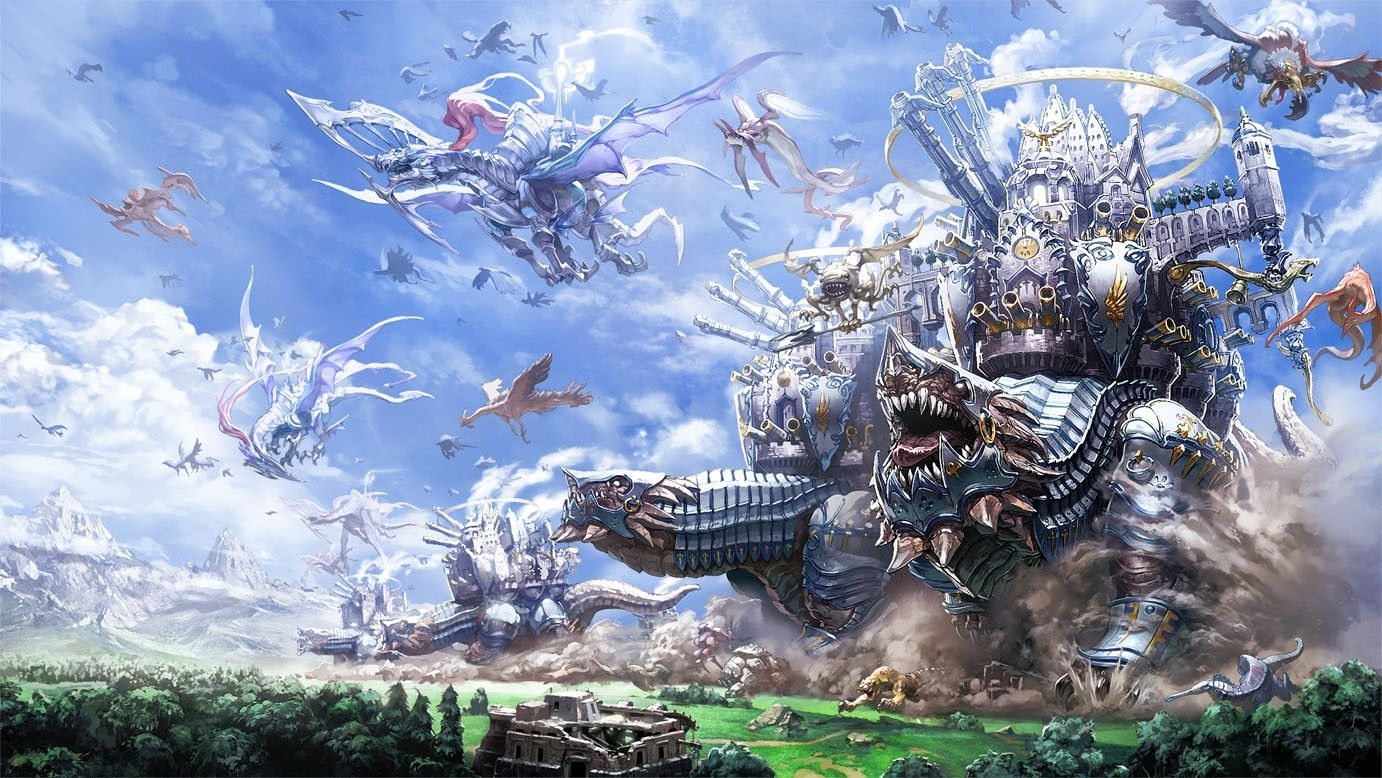
One thought on “What is an RPG?”